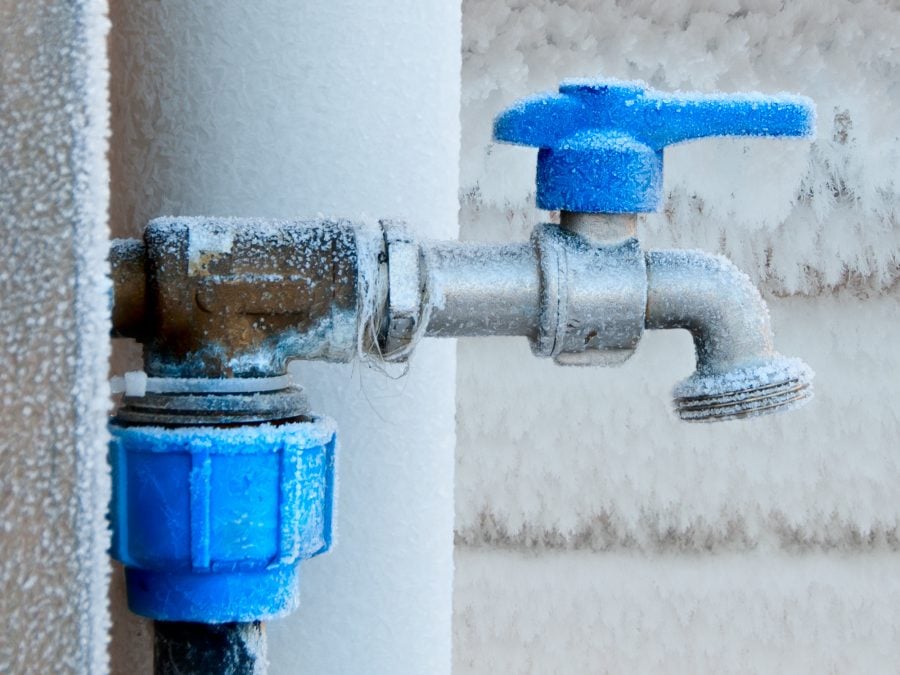Preventing Frozen Pipes in Cold Weather: Professional Advice
Preventing Frozen Pipes in Cold Weather: Professional Advice
Blog Article
Every person may have their unique thinking in relation to 6 Ways to Prevent Frozen Pipes.

Cold weather can wreak havoc on your pipes, particularly by freezing pipelines. Here's how to prevent it from taking place and what to do if it does.
Introduction
As temperatures drop, the threat of frozen pipelines rises, possibly resulting in costly repair work and water damage. Recognizing how to stop frozen pipes is critical for property owners in chilly environments.
Avoidance Tips
Shielding vulnerable pipes
Wrap pipes in insulation sleeves or utilize warmth tape to shield them from freezing temperature levels. Focus on pipes in unheated or exterior areas of the home.
Home heating techniques
Maintain indoor rooms adequately heated, specifically locations with pipes. Open cupboard doors to allow warm air to flow around pipelines under sinks.
Just how to determine frozen pipes
Seek lowered water circulation from taps, uncommon smells or noises from pipelines, and noticeable frost on subjected pipes.
Long-Term Solutions
Architectural modifications
Consider rerouting pipelines away from outside wall surfaces or unheated areas. Include extra insulation to attics, basements, and crawl spaces.
Upgrading insulation
Purchase premium insulation for pipelines, attic rooms, and wall surfaces. Proper insulation assists preserve regular temperatures and decreases the danger of icy pipelines.
Protecting Outdoor Plumbing
Garden pipes and exterior taps
Detach and drain pipes yard tubes prior to winter months. Install frost-proof faucets or cover exterior taps with protected caps.
Comprehending Frozen Pipes
What triggers pipelines to ice up?
Pipelines ice up when exposed to temperature levels listed below 32 ° F (0 ° C) for extended periods. As water inside the pipes ices up, it broadens, putting pressure on the pipeline walls and potentially creating them to burst.
Dangers and problems
Frozen pipelines can result in water supply disturbances, building damages, and costly repair work. Burst pipelines can flooding homes and create considerable architectural damage.
Signs of Frozen Pipes
Recognizing icy pipes early can stop them from rupturing.
What to Do If Your Pipes Freeze
Immediate activities to take
If you think icy pipes, maintain faucets open up to ease pressure as the ice melts. Make use of a hairdryer or towels soaked in warm water to thaw pipes gradually.
Verdict
Stopping icy pipes calls for proactive steps and fast responses. By comprehending the reasons, indicators, and preventive measures, house owners can shield their plumbing during cold weather.
Helpful Tips to Prevent Frozen Pipes this Winter
UNDERSTANDING THE BASICS: WHY PIPES FREEZE AND WHY IT’S A PROBLEM
Water freezing inside pipes is common during the winter months, but understanding why pipes freeze, and the potential problems it can cause is crucial in preventing such incidents. This section will delve into the basics of why pipes freeze and the associated problems that may arise.
THE SCIENCE BEHIND FROZEN PIPES
When water reaches freezing temperatures, it undergoes a physical transformation and solidifies into ice. This expansion of water as it freezes is the primary reason pipes can burst. As the water inside the pipe freezes, it expands, creating immense pressure on the walls. If the pressure becomes too great, the pipe can crack or rupture, leading to leaks and water damage.
FACTORS THAT CONTRIBUTE TO PIPE FREEZING
Low Temperatures: Extremely cold weather, especially below freezing, increases the risk of pipes freezing. Uninsulated or Poorly Insulated Pipes: Pipes located in unheated areas, such as basements, crawl spaces, or attics, are more prone to freezing. Insufficient insulation or lack of insulation altogether exacerbates the problem. Exterior Wall Exposure: Pipes running along exterior walls are susceptible to freezing as they encounter colder temperatures outside. Lack of Heating or Temperature Regulation: Inadequate heating or inconsistent temperature control in your home can contribute to frozen pipes. PROBLEMS CAUSED BY FROZEN PIPES
- Pipe Bursting: As mentioned earlier, the expansion of water as it freezes can cause pipes to burst, resulting in significant water damage.
- Water Damage: When pipes burst, it can lead to flooding and water damage to your property, including walls, ceilings, flooring, and personal belongings.
- Structural Damage: Prolonged exposure to water from burst pipes can compromise the structural integrity of your home, leading to costly repairs.
- Mold and Mildew Growth: Excess moisture from water damage can create a favorable environment for mold and mildew growth, posing health risks to occupants.
- Disrupted Water Supply: Frozen pipes can also result in a complete or partial loss of water supply until the issue is resolved.
WHY CERTAIN PIPES ARE MORE PRONE TO FREEZING
- Location: Pipes located in unheated or poorly insulated areas, such as basements, crawl spaces, attics, or exterior walls, are at higher risk of freezing.
- Exterior Pipes: Outdoor pipes, such as those used for irrigation or exposed plumbing, are particularly vulnerable to freezing as they are directly exposed to the elements.
- Supply Lines: Pipes that carry water from the main water supply into your home, including the main water line, are critical to protect as freezing in these lines can affect your entire plumbing system.
- Underground Pipes: Pipes buried underground, such as those connected to sprinkler systems or outdoor faucets, can be susceptible to freezing if not properly insulated.
https://busybusy.com/blog/helpful-tips-to-prevent-frozen-pipes-this-winter/

Hopefully you enjoyed our excerpt on How to prepare your home plumbing for winter weather. Thank you for taking time to read through our post. In case you appreciated our blog post please consider to share it. I appreciate reading our article about 6 Ways to Prevent Frozen Pipes.
Book Today Report this page